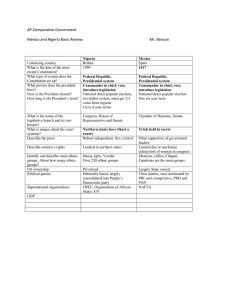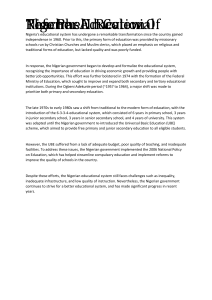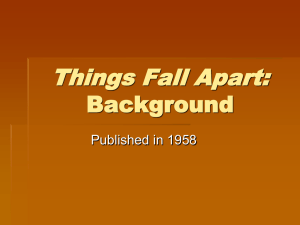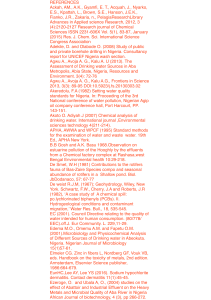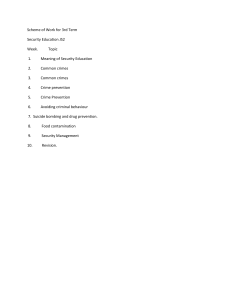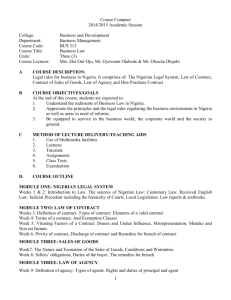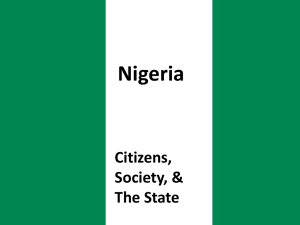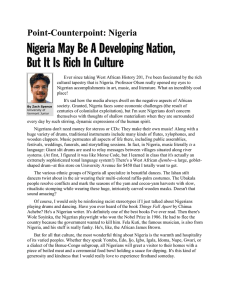nigeria
advertisement
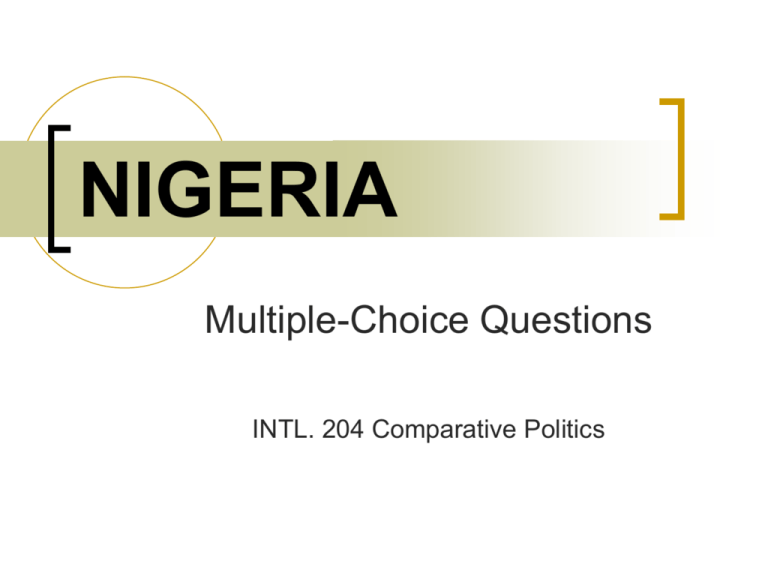
NIGERIA Multiple-Choice Questions INTL. 204 Comparative Politics Question 1: Between 1805 and 1960, the colonial rulers of Nigeria were a. French Portuguese British German b. c. d. Question 2: In the 16th and 17th century, the major source of export income was a. Cotton Cocoa Slaves Peanuts b. c. d. Question 3: The strategy of “indirect rule” a. Supported the rule of traditional leaders Meant that only British military noncommissioned officers were in charge Allowed for the development of indigenous political parties Allowed intervention into everyday life by the colonizers b. c. d. Question 4: The “dependency ratio” is a measure of a. The proportion of non-working population to working population The proportion of individuals on government welfare to those not on government welfare The degree to which the country is dependent on foreign aid A measure designed to indicate dependency on foreign imports vs. exports b. c. d. Question 5: Petroleum production began to be a significant export earning in a. the 1950s the 1960s the 1970s the 1980s b. c. d. Question 6: Oil revenues accrue to a. private companies foreign companies region where the oil is produced the state of Nigeria b. c. d. Question 7: Which groups have most influence on the Nigerian state? a. associational groups nonassociational groups religious and ethnic groups institutional groups b. c. d. Question 8: Multiple ethnic identities have had a. A fragmenting effect on political structure A unifying effect given the consensus on ideology No effect whatsoever Increasingly less influence in Nigerian politics b. c. d. Question 9: Where the south is generally a mixture of indigenous religions and Christianity, the north is primarily a. Islamic Catholic Animist Hindu b. c. d. Question 10: The Biafran War took place in a. 1948 1954 1967 1983 b. c. d. Question 11: Another word for clientelism is a. Business associate Patronage Corruption Accountability b. c. d. Question 12: The official language of Nigeria is a. Hausa-Fulani French English There is no official language b. c. d. Question 13: Nigerian federalism is supported largely by a. Control over petroleum revenues Federal military and police units Consensus of the ethnic groups Adherence to Constitutional principles b. c. d. Question 14: The organizational base of most political parties is a. the family and community religious factions labor unions ethnic and regional b. c. d. Question 15: ECOWAS is a regional organization that is active a. as a political organization in support of the development of free trade zones as a regional security organization All of the above b. c. d.
